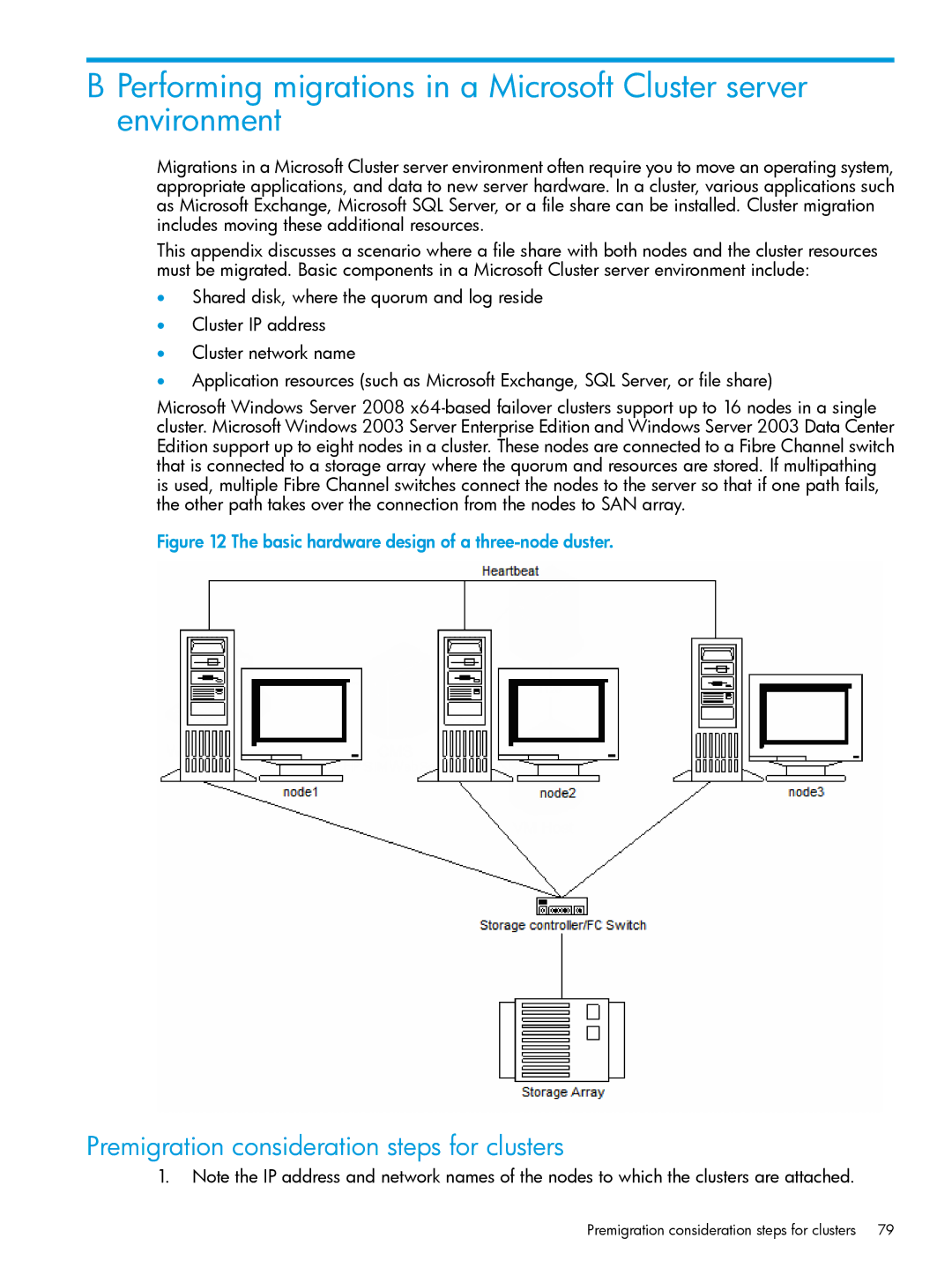
B Performing migrations in a Microsoft Cluster server environment
Migrations in a Microsoft Cluster server environment often require you to move an operating system, appropriate applications, and data to new server hardware. In a cluster, various applications such as Microsoft Exchange, Microsoft SQL Server, or a file share can be installed. Cluster migration includes moving these additional resources.
This appendix discusses a scenario where a file share with both nodes and the cluster resources must be migrated. Basic components in a Microsoft Cluster server environment include:
•Shared disk, where the quorum and log reside
•Cluster IP address
•Cluster network name
•Application resources (such as Microsoft Exchange, SQL Server, or file share)
Microsoft Windows Server 2008
Figure 12 The basic hardware design of a three-node duster.
Premigration consideration steps for clusters
1.Note the IP address and network names of the nodes to which the clusters are attached.
Premigration consideration steps for clusters | 79 |
